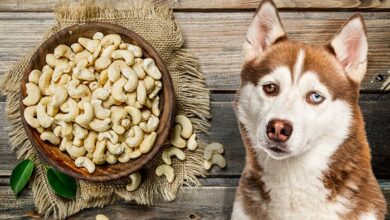Can Dogs Eat Fruit Roll-Ups? Risks and Safe Alternatives in 2024

Can Dogs Eat Fruit Roll-Ups? What are Fruit Roll-Ups? These fruit-flavored snacks are made mainly from fruit puree, sugars, and various artificial additives. They’re well-known for their sweet taste and chewy texture, making them a favorite treat among children.
Although it’s tempting to share these snacks with your dog, they’re not meant for pets. Let’s explore why Fruit Roll-Ups aren’t a safe choice for dogs and find out what better alternatives you can offer your furry friend.So, let’s explore together that- can dogs eat fruit roll ups?
Key Ingredients in Fruit Roll-Ups: Are They Harmful to Dogs?
When evaluating whether “Can dogs eat fruit roll-ups?”, it’s important to consider the key ingredients in these snacks and their potential impact on canine health. Fruit roll-ups contain several components that may be harmful to dogs. Here’s a closer look at these ingredients and their risks:
High Sugar Levels
- Obesity: Fruit roll-ups are high in sugar, which can contribute to significant weight gain in dogs. Excessive sugar intake leads to obesity, which is associated with various health problems, including joint issues and decreased mobility.
- Diabetes: Consistent consumption of sugary treats can increase a dog’s risk of developing diabetes. High blood sugar levels from frequent sugar intake can disrupt normal insulin function.
- Dental Issues: The high sugar content can cause dental problems such as cavities and gum disease. The sugar sticks to teeth and provides a breeding ground for bacteria, leading to oral health issues.
Artificial Flavors and Colors
- Allergic Reactions: Artificial flavors and colors used in fruit roll-ups can trigger allergic reactions in some dogs. Symptoms may include itching, swelling, and digestive upset.
- Hyperactivity: These additives can sometimes cause hyperactivity or behavioral changes in dogs, affecting their overall well-being and behavior.
Preservatives like BHT and BHA
- Potential Health Effects: Preservatives such as BHT (butylated hydroxytoluene) and BHA (butylated hydroxyanisole) are used to extend the shelf life of fruit roll-ups. However, these chemicals have been linked to potential long-term health risks, including cancer and liver damage, in both humans and animals.
- Long-Term Impact: Regular exposure to these preservatives can accumulate in a dog’s system, potentially leading to chronic health issues over time.
If you are wondering “Can dogs eat fruit roll-ups?”, it is clear that the ingredients in these snacks—such as high sugar levels, artificial flavors and colors, and harmful preservatives—pose significant risks to canine health. It’s best to avoid fruit roll-ups and opt for healthier, dog-friendly treats that provide better nutritional value and pose fewer risks.
Understanding the Risks of Feeding Fruit Roll-Ups to Dogs
When considering whether “Can dogs eat fruit roll-ups?”, it’s crucial to understand the associated risks. Fruit roll-ups, while appealing to humans, pose several dangers to canine health due to their composition and texture. Here’s a breakdown of why these snacks are not suitable for dogs:
Lack of Essential Nutrients-Can Dogs Eat Fruit Roll-Ups?
- Nutritional Deficiency: Fruit roll-ups provide little to no nutritional value beneficial to dogs. They lack the essential vitamins, minerals, and proteins that dogs need for a balanced diet. Relying on such snacks can result in deficiencies and imbalances in a dog’s diet.
Sticky Texture
- Choking Hazard: The sticky and chewy nature of fruit roll-ups poses a choking risk for dogs. These treats can get lodged in a dog’s throat, especially if consumed too quickly.
- Digestive Blockages: The sticky texture can also lead to digestive blockages. Fruit roll-ups may become entangled in the digestive tract, causing discomfort and potentially serious health issues.
High Sugar Content
- Immediate Health Issues: The high sugar content in fruit roll-ups can lead to immediate problems such as an upset stomach, vomiting, and diarrhea in dogs. Excessive sugar can disrupt a dog’s digestive system and lead to discomfort.
- Long-Term Health Risks: Long-term consumption of sugary foods like fruit roll-ups can contribute to more severe health problems, including pancreatitis. Pancreatitis is an inflammation of the pancreas that can cause significant pain and digestive issues.
When evaluating “Can dogs eat fruit roll-ups?”, it’s evident that the risks far outweigh any potential benefits. The lack of essential nutrients, choking hazards, and high sugar content make fruit roll-ups an unsuitable treat for dogs. Opting for healthier alternatives that are specifically designed for canine consumption is a better choice for maintaining your dog’s health and well-being.
Possible Health Consequences for Dogs
When exploring the question “Can dogs eat fruit roll-ups?”, it’s essential to understand the potential health consequences associated with these treats. Fruit roll-ups, while often enjoyed by humans, can pose significant health risks to dogs. Here’s a closer look at the potential issues:
Increased Risk of Obesity
- Weight Gain: The high sugar content in fruit roll-ups can lead to significant weight gain in dogs. Regular consumption of sugary treats contributes to obesity, which is linked to a variety of health problems in dogs, including joint issues, heart disease, and decreased mobility.
- Related Health Problems: Obesity can lead to further health complications such as diabetes, respiratory problems, and a reduced lifespan. Maintaining a healthy weight is crucial for your dog’s overall well-being.
Potential for Gastrointestinal Issues
- Digestive Distress: When dogs consume fruit roll-ups, they may experience gastrointestinal issues such as vomiting and diarrhea. The sugar and sticky texture can upset their digestive system, leading to discomfort and potential dehydration.
- Stomach Upset: Even a small amount of fruit roll-up can cause a significant digestive upset, especially if your dog has a sensitive stomach or pre-existing digestive conditions.
Long-Term Effects from Artificial Additives
- Health Risks from Additives: Fruit roll-ups often contain artificial flavors, colors, and preservatives that can be harmful to dogs. Prolonged exposure to these additives may contribute to health problems over time, including allergies and other chronic conditions.
- Overall Health Impact: The cumulative effect of consuming artificial additives can negatively impact a dog’s overall health, affecting their immune system and leading to potential long-term issues.
When considering “Can dogs eat fruit roll-ups?”, it’s clear that the risks of increased obesity, gastrointestinal issues, and long-term effects from artificial additives outweigh any possible benefits. For your dog’s health and safety, it is best to avoid feeding them fruit roll-ups and opt for healthier, dog-friendly treats.
What to Do If Your Dog Eats a Fruit Roll-Up
If you find yourself asking “Can dogs eat fruit roll-ups?” and discover that your dog has consumed one, it’s important to take the following steps to ensure their health and well-being:
Monitor Your Dog
- Watch for Symptoms: Keep an eye on your dog for any signs of distress such as lethargy, vomiting, or diarrhea. These symptoms can indicate that the fruit roll-up has caused gastrointestinal upset or other health issues.
- Check Behavior: Note any changes in behavior, such as unusual lethargy or restlessness, which may signal that your dog is having a reaction to the fruit roll-up.
Contact Your Veterinarian
- Seek Professional Advice: If your dog has eaten a significant amount of fruit roll-up or shows concerning symptoms, it’s essential to consult your veterinarian. They can provide tailored advice and recommend appropriate treatment if necessary.
- Provide Details: When contacting your vet, provide details about the amount consumed and any symptoms observed to help them make an informed assessment.
Avoid Offering More Treats
- Withhold Additional Treats: Until you’re sure that your dog is recovering well and not experiencing any adverse effects, refrain from giving them any more treats. This helps prevent additional strain on their digestive system and avoids further health complications.
- Focus on Monitoring: Concentrate on monitoring your dog’s condition and following your vet’s advice to ensure they are in the clear.
If you’re dealing with the question “Can dogs eat fruit roll-ups?” and your dog has ingested one, closely monitoring their health, seeking veterinary advice, and avoiding additional treats are crucial steps to take. This approach will help safeguard your dog’s well-being and ensure they recover swiftly.
Safe Alternatives to Fruit Roll-Ups for Dogs
When considering whether “Can dogs eat fruit roll-ups?” it’s important to note that they are not a suitable treat for dogs. Fortunately, there are many safe and healthy alternatives that you can offer your furry friend:
Fresh Fruit Options
- Apple Slices: Apples are a great source of vitamins and fiber for dogs. Be sure to remove the seeds and core before giving them to your dog.
- Blueberries: These small berries are packed with antioxidants and are safe for dogs when given in moderation.
- Watermelon: A hydrating fruit, watermelon can be a refreshing treat for dogs. Ensure that you remove the seeds and rind before offering it.
Dog-Friendly Snacks
- Natural Ingredients: Choose dog treats made from high-quality, natural ingredients without added sugars or artificial additives. These treats are formulated to meet your dog’s dietary needs.
- Commercial Dog Treats: Look for treats specifically designed for canine health that contain wholesome, dog-safe ingredients. Avoid treats with high sugar or fat content.
Homemade Treats
- Dog-Safe Fruits and Vegetables: Create treats at home using dog-friendly fruits like apples and blueberries or vegetables like carrots and sweet potatoes. Ensure that these treats are free from artificial additives and excessive sugars.
- Simple Recipes: Make homemade treats using basic ingredients like oats, pumpkin, and peanut butter. These recipes allow you to control what goes into your dog’s diet, making them a healthier option compared to processed snacks.
In summary, while “Can dogs eat fruit roll-ups?” the answer is no, there are plenty of safe and healthy alternatives. Fresh fruits, dog-friendly snacks made from natural ingredients, and homemade treats are excellent choices that can provide your dog with nutritious and enjoyable treats.




